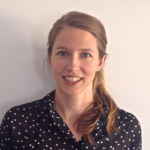The current methods available to clinicians and researchers to measure the progression of disease and disability in people with MS are relatively insensitive and must be measured over relatively long periods of time to detect changes. However, people with early MS often have changes to their brains which do not result in symptoms, so called ‘sub-clinical changes’ which can affect disability later in the disease. Clinical trials for medications that aim to slow or halt disability progression are also hampered by this lack of sensitive measures for progression.
Dr Barton, a clinician currently receiving advanced training in neurology, will undertake a postgraduate scholarship to develop a tablet based tool that will track sub-clinical changes in real-time.
The tests, which can be easily administered on a tablet device in the clinic or for the first time, in a person’s home, will measure aspects of the visual system – the eyes and the parts of the brain that process vision. The tablet based testing will be recorded over time and compared with more traditional MRI scanning measures of relapse activity and clinical measurements of disability and disturbance to the visual pathway.
Dr Barton will also determine whether these visual measurements also show improvement in people who improve clinically after commencing highly effective disease modifying therapy for their MS. It is expected this research will yield a novel tool for use in clinical trials and in the clinic to monitor disease progression and the effectiveness of therapies for MS in the real world setting.
Updated; 11 June 2020
Dr Joshua Barton
$67,000
2017
2 years
Past project

